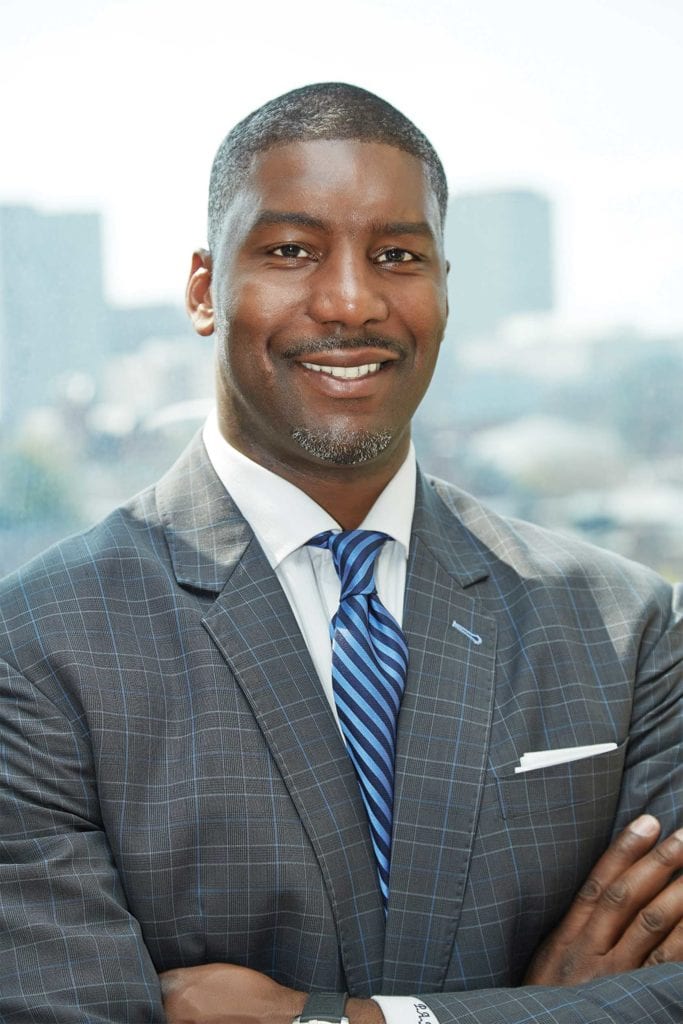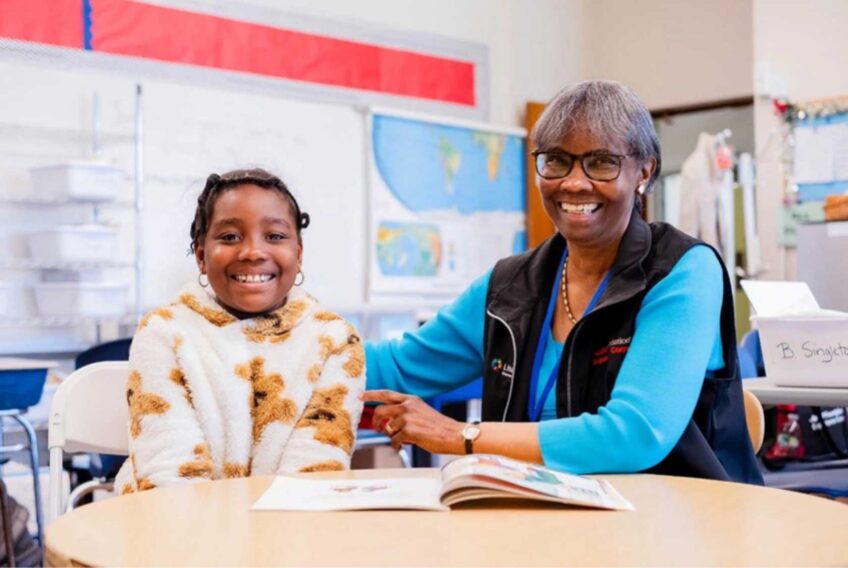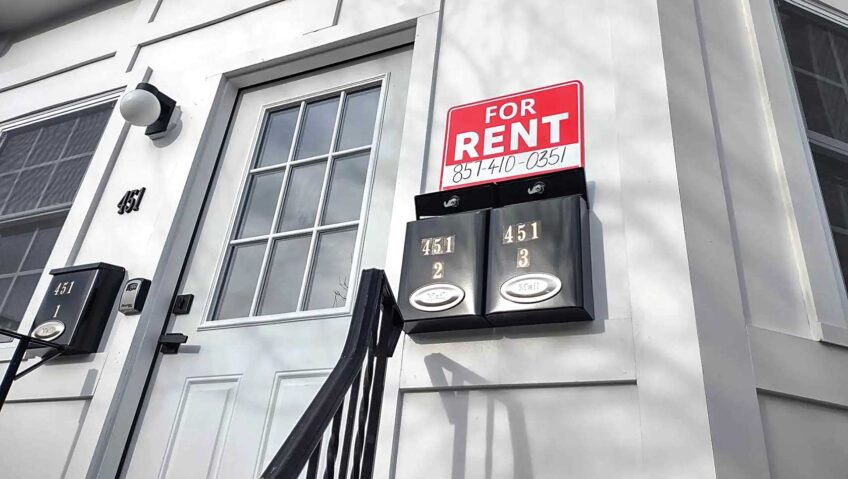New funds aimed at wealth disparities
Black executives leverage power to help fund community groups

Black neighborhoods long ignored, overlooked or illegally bypassed for investment may see a surge of new businesses, jobs and development as a result of major commitments from a quartet of public and private funds launched in the wake of massive nationwide protests over the death of George Floyd and other victims of police violence.
The most notable local effort was the launch last week of the New Commonwealth Racial Equity and Social Justice Fund by nearly two dozen executives of color, who committed $20 million in personal and corporate resources to jumpstart a target of $100 million in investment capital. The initial focus will be to support community nonprofits working in the areas of economic empowerment, police and criminal justice reform, health care equity and youth education.
“It’s time to change the narrative on race in Boston,” said Paul Francisco, State Street Corporation’s chief diversity officer, in announcing the fund. “A fund of this nature — for Black and brown communities and led by Black and brown corporate executives – has never been attempted in Boston before. We firmly believe we can make the lasting and meaningful changes our communities of color so desperately need.”
On a separate front, the Black Economic Council of Massachusetts (BECMA), boosted by a $100,000 private grant, has launched a drive to come up with a $1 billion fund to reduce racial inequities over the next decade. The Boston-based nonprofit announced the Black Massachusetts Coalition Project — endorsed by a range of organizations serving communities of color — while releasing a blueprint for social transformation through challenges to the corporate sector, nonprofits, philanthropic entities, and state and local governments. The coalition calls on them to meet a series of ambitious goals, including the creation of a public bank and commitments from venture capital firms and banks to pledge 10% of their capital to businesses owned by Blacks and Indigenous people.
“As Black leaders in our respective communities and fields, we are well acquainted with the cycle of grief that strikes the white community when the tragedy of our condition is too public to ignore,” wrote members of the coalition in the project’s blueprint released by Segun Idowu, executive director of the council. “We formed this coalition to guide those individuals and organizations in the private sector, the nonprofit and philanthropy worlds and the halls of government who are attempting right now to determine how they should respond to the constant rage of an oppressed people.”
City Hall’s Racial Equity Fund
Boston City Hall’s Racial Equity Fund, announced the same week Mayor Marty Walsh appointed MIT Professor Karilyn Crockett to the newly created cabinet position of equity and inclusion officer, will raise money from corporate and philanthropic sources to support nonprofits working on economic development, education and public health. Walsh hopes the $10 million initial goal of the fund will expand to $50 million over the long term.
“My announcements today advance our work to root out systemic racism and build up racial equity in our city,” said Walsh, restating earlier commitments to listen to communities suffering the disproportionate impacts of racism, economic disinvestment and the coronavirus epidemic. “Today is another day in advancing the work we need to do in the city. This is a conversation that every community needs to keep at the forefront. It’s a conversation that needs to produce both immediate and ongoing change.”
A little more than a week after a Minneapolis cop knelt on the neck of George Floyd for close to nine minutes, ending his life and sparking coast-to-coast protests, the Bank of America pledged to put $1 billion into a four-year national commitment to address economic and racial inequities in health, housing, training and small business growth. Meetings have already been held in Boston to target areas of investment, according to sources participating in the discussions.
In announcing the commitment in early June, Brian Moynihan, the bank’s chief executive officer, referred to stewing disparities that the COVID-19 crisis and the George Floyd protests have put in clear relief, prompting the massive financial institution to take action.
“Underlying economic and social disparities that exist have accelerated and intensified during the global pandemic,” said Moynihan. “The events of the past week have created a sense of true urgency that has arisen across our nation, particularly in view of the racial injustices we have seen in the communities where we work and live. We all need to do more.”
The wealth gap
The wealth gap between Black and white in Boston targeted in part by the new funds is best epitomized by a Boston Federal Reserve Bank study showing the median wealth of a Black household in Boston at $8, while for whites it was $247,000.
In Massachusetts, people of color own about 90,000 businesses out of close to 600,000 in total. But most minority-owned enterprises employ less than 10 people, are routinely undercapitalized and in constant danger of failing. The COVID crisis has had a further destabilizing effect on Black businesses. BECMA reported in March that 90% of Black firms it surveyed were reporting negative impacts of the pandemic.
Nationally, the number of working African American business owners has dropped more than 40% due to the virus, according to a report released in May. Other statistics are equally discouraging: Average Black household wealth in America is one-tenth that of white households; only 44% of Black households own their homes – the most critical component of wealth creation and source of equity for business development — compared to 74% of non-Hispanic white households. Ominously, African American home ownership last year fell to its lowest level since the 1970s, according to an analysis in the Economist.
Joseph D. Feaster Jr., chairman of the Urban League of Eastern Massachusetts, said he hoped the recently launched funds complement rather than compete with each other and succeed in reversing negative economic trends in the Black community.
“The only way you can address the wealth gap issue is to strengthen minority businesses,” said Feaster. “Commitments can flow over into educational scholarships but I favor dollars going to stimulate and support the entrepreneurial spirit in the black community.”
The former NAACP Boston branch president said he was impressed by the makeup of the New Commonwealth group, comparing it to the “Vault,” the informal group of white powerbrokers who exerted considerable economic and social clout behind the scenes in Boston up through the 1990s.
“Have we now established a Black Vault?” asked Feaster. “I hope so. Time will tell whether we’re actually able to close the wealth gap. But I applaud the effort.”
Members of the New Commonwealth Racial Equity and Social Justice Fund include Eastern Bank President Quincy Miller; DentaQuest President Myechia Minter-Jordan; Boston Scientific Senior Vice President Desiree Ralls Morrison; Valmo Ventures CEO Valerie Mosley; Converse General Counsel Rodney Pratt; Red Sox Foundation Executive Director Rebekah Splaine Salwasser; Bain Capital Double Impact Director Greg Shell; Rapid7 CEO Corey Thomas; Latham & Watkins Partner BJ Trach; Vertex Pharmaceuticals Chief Risk and Compliance Officer Damian Wilmot; MassMutual Head of Strategic Planning Dominic Blue; former U.S. Sen. Mo Cowan, currently president of General Electric’s government affairs and policy division; Fidelity Investments Senior Vice President Pamela Everhart; Suffolk Construction Vice President Linda Dorcena Forry; Liberty Mutual Senior Vice President Damon Hart; Berkshire Bank Executive Vice President Malia Lazu; Thermo Fisher Senior Vice President Fred Lowery; and Blue Cross Blue Shield Executive Vice President Stephanie Lovell.






